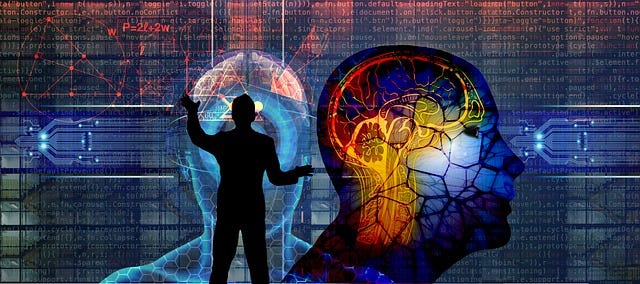
There is a major shift occurring in management education. The traditional approaches to teaching management are facing competition from fresh, creative ideas in today’s environment that is changing quickly. Introducing neuroscientific concepts into management education is one of the most interesting new advances. Understanding the functioning of the brain enables educators to design more engaging lesson plans that provide aspiring managers with the skills necessary to succeed in the complicated demands of the modern workplace. This blog highlights how this new field of study has the potential to completely transform how we teach and learn by examining the future of management education through its understanding of neuroscience.
Understanding Neuroscience and Its Relevance to Management
Science that studies the nervous system, which includes the brain, is called neuroscience. It looks into how the brain decides what to do, how to interpret information, and how to regulate behaviour. Researchers have come a long way in the last several years in their knowledge of how the brain works, especially in relation to learning, memory, and making decisions. The education of managers will be significantly impacted by these discoveries.
Decision-making, problem-solving, and people-leading are the fundamental components of management. We can get more insight into the thinking, learning, and decision-making processes of aspiring managers by incorporating neuroscientific concepts into management education. With the application of this understanding, educators may create curriculum and instructional strategies that complement the brain’s natural functions, improving student engagement and effectiveness.
The Brain’s Role in Learning
Studying the way the brain operates the learning process is essential for understanding how neuroscience may improve management education. Large volumes of information are processed daily by the complex brain. New connections are formed or previously established ones are strengthened by neurons, the brain’s cells, during learning. Learning new information and abilities are acquired through a process called synaptic plasticity.
Learning is most successful when it is relevant, dynamic, and engaging, according to a major neuroscience discovery. The brain’s neural networks are not as intensely activated by passive learning as they are by active learning, which is why listening to lectures or reading textbooks is less beneficial. Practical exercises, problem-solving techniques, and critical thinking are all components of active learning that activate neurological processes in the brain.
Neuroscience and Management Education: A Perfect Match

For years, case studies, assessments, and lectures have been the main methods of instruction in management education. These teaching strategies are useful, but they cannot completely include students’ minds in the process of learning. Education in management may be improved by using several strategies that are provided by neuroscience.
1. Experiential Learning: Experiential learning, or learning by undertaking, is a very effective learning method, according to neuroscientific research. Deeper understanding and concept retention result from these activities, which activate the cognitive and emotional centres of the brain.
2. Emotional Engagement: Learning is significantly facilitated by emotions. When students are emotionally invested in the subject matter, their brains release dopamine and other neurotransmitters that improve memory and learning. Management education can take advantage of this by using emotional storytelling, real-world case studies, and discussions.
3. Personalized Learning: People learn differently and at different rates, as demonstrated by neuroscience, which also reveals that every person’s brain is unique. One-size-fits-all methods may not always be as successful as personalized learning, which adjusts instruction to meet the requirements of each student individually. This might apply to management education and adaptive learning systems, which evaluate student progress and modify the curriculum as necessary.
The Future of Management Education

The field of neuroscience will have a greater and greater influence on management education as it develops. Brain-based learning methodologies, technological integration, and individualized education will probably be given greater importance in management education going forward.
1. Technology Integration: Using neuroscientific concepts in education about management has become increasingly possible with the development of digital technology. Learning experiences that are comprehensive and activate the brain’s sensory and cognitive processes can be produced using virtual reality (VR) and augmented reality (AR).
2. Mindfulness and Well-being: The significance of well-being and mindfulness in learning has also been emphasized by neuroscience. Students may find it more difficult to learn and remember information if they are experiencing stress or worry since these conditions might affect cognitive processes. The integration of mindfulness practices, such as stress management methods and meditation, into management education has the potential to improve students’ cognitive capacity and attention. Future managers can be better prepared to handle pressure and make wiser judgments by enrolling in a management school that incorporates mindfulness training.
3. Lifelong Learning: Additionally, lifelong learning will be emphasized in management education going ahead. In a world that is changing quickly, managers must always be updating their knowledge and skill sets. According to neuroscience, our brains are flexible throughout our lives, so even as we become older, we can still learn new things and adjust to our environment. By providing modular courses, online learning options, and flexible learning paths that enable people to upskill and reskill as needed, management education programs may facilitate lifelong learning.
Conclusion
With the insights that neuroscience has to provide, management education has a bright future. Educators can create more efficient and interesting learning environments by understanding how the human mind takes in and interprets information. Neuroscience has the potential to revolutionize education in management through a variety of means, including experiential learning, emotional involvement, individualized teaching, and technological integration. The combination of management education with neuroscience will eventually lead to the development of a new generation of managers that possess not just knowledge but also leadership, critical thinking, and decision-making abilities. Future leaders will surely be better equipped to face the problems of the contemporary corporate environment because of this neuroscientific approach to management education.

